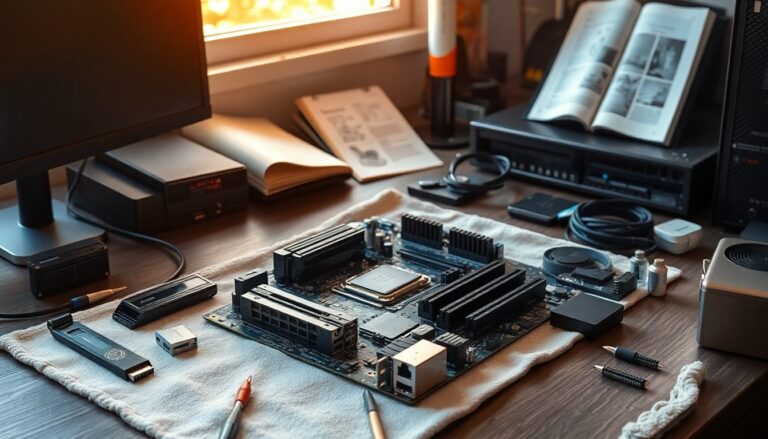Argomenti trattati
Building a budget gaming PC is an exciting venture that allows gamers to enjoy the latest titles without overspending. With the right components, it is possible to create a machine that delivers impressive performance at an affordable price. This article explores the best components for your budget build, prioritizing performance, compatibility, and value.
As gaming technology advances, the demand for powerful systems continues to increase. However, it is vital to balance price and performance. Below, we examine key components that will enable you to assemble a budget-friendly gaming rig tailored to your needs.
Choosing the right CPU
The central processing unit (CPU) serves as the core of your gaming PC. For budget builds, it is essential to select a processor that strikes a balance between cost and performance. AMD Ryzen 5 and Intel Core i5 processors are excellent choices, providing robust performance for gaming without excessive expense.
AMD vs. Intel
When choosing between AMD and Intel, consider your gaming preferences and the genres you enjoy. AMD processors, particularly the Ryzen series, offer more cores and threads, enhancing multitasking and performance in games that utilize multiple threads. Conversely, Intel processors typically excel in single-core performance, making them suitable for games that rely heavily on single-threaded operations.
Graphics card selection
The graphics processing unit (GPU) significantly influences your gaming experience. For budget builds, consider options like the NVIDIA GeForce GTX 1660 Super or AMD Radeon RX 6500 XT. These graphics cards provide solid performance for most modern games at 1080p resolution.
Performance per dollar
When selecting a GPU, focus on the performance per dollar metric, which indicates the performance you receive for each dollar spent. It is crucial to compare benchmarks and reviews for the cards you are considering, as this will guide you in making an informed decision that balances cost and performance.
Memory and storage options
To ensure a smooth gaming experience, sufficient random access memory (RAM) is necessary. Aim for at least 16GB of RAM to guarantee that your system can handle modern games and multitasking effectively. Regarding storage, consider a combination of a solid-state drive (SSD) and a hard disk drive (HDD). An SSD will greatly enhance loading times, while an HDD can provide ample space for games and files.
Choosing the right SSD
When selecting an SSD, pay attention to the NAND type and interface. NVMe SSDs outperform traditional SATA SSDs, offering a noticeable speed boost in loading times. Brands like Samsung and Crucial present reliable options that cater to varying budgets.
Power supply and case considerations
Do not underestimate the significance of a quality power supply unit (PSU) and a suitable case. A PSU with a good efficiency rating (80 Plus Bronze or higher) will ensure stable power delivery to your components. When choosing a case, confirm it has adequate airflow and sufficient space for your components.
Future-proofing your build
While focusing on budget, consider a case that allows for expansion. This will provide you with the flexibility to upgrade your components in the future without the need to replace the entire case.
As gaming technology advances, the demand for powerful systems continues to increase. However, it is vital to balance price and performance. Below, we examine key components that will enable you to assemble a budget-friendly gaming rig tailored to your needs.0

